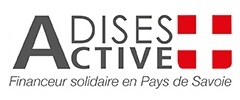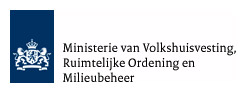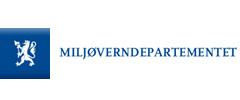European food panel fails to protect EU citizen’s health from plastic component, BPA
EU failure to protect its citizens
11.10.2010 |HEAL Press Release
Brussels, 30 September 2010 – The Health and Environment Alliance (HEAL), WWF, CHEM Trust and Breast Cancer UK are dismayed at today's conclusion from the European Food Safety Authority (EFSA) that no stronger protection for public health is needed from the controversial synthetic chemical bisphenol A (BPA). (1)
In June 2010, during the EFSA review process, HEAL and other environment and health groups backed a letter sent to the European food authority by 21 leading scientists (2). It states that: "We believe any objective and comprehensive review of the scientific literature will lead to the conclusion that action is necessary to reduce the levels of BPA exposure, particularly in groups at highest risk, namely young infants and pregnant mothers."
Lisette van Vliet – Toxics Policy Advisor, Health and Environment Alliance (HEAL) says “We are shocked by today's conclusion. With growing evidence that BPA may play a role in major chronic diseases, such as breast cancer and diabetes, reducing levels of human exposure is a necessary and important step. The exposure of the developing foetus in the womb warrants particular attention because BPA can cross the placenta."
Elizabeth Salter Green – Director of CHEM Trust noted “With so many studies showing current levels of exposure to BPA may be harming our children, the time for action is long overdue”
Some leading environmental and health groups have been calling for bans on BPA for several years. More recently, cancer groups in the UK and France, such as Breast Cancer UK (3) and the French League Against Cancer, have launched campaigns.
Clare Dimmer - Chair of Breast Cancer UK stated “we are deeply disappointed at this outcome which assists only those who sell the product and, as breast cancer is already the foremost cancer in Europe, this blatant lack of concern for public health will not help to reduce the incidence of this life-threatening disease.”
Bisphenol A is a hormone disruptor that can disrupt estrogen and other hormones. It is used for many consumer products, including polycarbonate babies’ feeding bottles, and widely found in people’s bodies and the environment.
In the long-awaited EFSA opinion published today, an expert panel stated that they see no need to reduce the tolerable daily intake (TDI). (4) EFSA acknowledges that they cannot rule out BPA related effects of possible relevance such as changes in the brain as these findings cannot be assessed for human health due to shortcomings in the studies. NGOs therefore believe that the precautionary principle should be invoked - given the potential serious and irreversible effects.
Some EU member states, such as Denmark and France, have taken action to reduce people’s exposure to BPA. Austria and Sweden have announced they will also take national measures if the EU does not quickly forbid BPA in baby bottles. (5) In June, the German authorities advised manufacturers, importers and users of bisphenol A (BPA) to use alternative substances that pose less risk to human health and the environment in all areas of use that significantly contribute to exposure. (6)
HEAL and other NGOs are calling for stronger regulatory protection of public health at the EU level, but in the absence of this, support national bans. They are also urging regulation of endocrine disrupting chemicals, such as BPA. (7) They continue to recommend that industry makes products "BPA-free".
“Industry must do better than use a hormone disruptor dating from the 1930’s which was scrapped due to its inefficiency as a drug and which has now ended up in numerous consumer items instead. BPA-free alternatives are already available on the market. Companies inside and outside the EU are well advised to use them,”commented Ninja Reineke from WWF European Policy Office.
Notes to the editor:
1. EFSA updates advice on bisphenol A. 30 September 2010 http://www.efsa.europa.eu/en/press/news/cef100930.htm
In October 2009, EFSA was asked by the European Commission to assess the relevance of a new study on possible neuro-developmental effects of BPA and, if necessary, to update the "Tolerable Daily Intake" set in 2007. In March 2010, the Commission asked EFSA to take into account in its risk assessment any other new scientific evidence that may be available and to liaise closely with EU Member States risk assessment bodies on this issue. EFSA website on BPA: http://www.efsa.europa.eu/en/ceftopics/topic/bisphenol.htm
2. In June 2010, a joint letter to EFSA from scientists and organisations across the globe expressed concerns and concluded that. based on the available scientific studies, reducing levels of human exposure to BPA was necessary. Press release and letter available athttp://www.chemicalshealthmonitor.org/spip.php?article462
3. Breast Cancer UK campaign video and report "No more BPA" available at http://www.nomorebpa.org.uk/
4. The Tolerable Daily Intake is a specific amount in food or drinking water that, according to the current processes of Risk Assessment, can be ingested orally over a lifetime without an ‘appreciable’ health risk.
5. Regulatory Actions on BPA
- Denmark has introduced a national ban on BPA in materials in contact with food for children aged 0-3 years (infant feeding bottles, feeding cups, packaging for baby food).
- France has introduced a law that forbids BPA in baby bottles, before which a number of French cities had banned BPA-laden baby bottles in city nurseries and day care centres.
- Sweden and Austria have announced it will also take national measures if the EU does not quickly forbid BPA in baby bottles.
- Canada has announced it will add BPA to its list of toxic substances, and banned polycarbonate baby bottles that contain bisphenol A on 11th March 2010.
- USA EPA has announced it will consider identifying BPA on the ‘Concern List’ as a substance that may present an unreasonable risk . Numerous cities and states have moved or are considering to ban sales of BPA in baby bottles and ‘sippy cups’ (Chicago, San Francisco, Wisconsin, Connecticut, Minnesota, Maryland). California has announced that it will add BPA to the state’s list of chemicals known to cause cancer or birth defects.
6. The German Federal Environmental Agency report and press statement on BPA is available at
http://www.umweltbundesamt.de/uba-info-presse-e/2010/pe10-033_bisphenol_a_a_chemical_with_adverse_effects_produced_in_large_quantities.htm
7. REACH is the EU chemicals law and stands for Registration, Evaluation, Authorisation and Restriction of Chemicals. A restriction under REACH can ban on one or more commercial uses or product applications for the EU market, and includes both imports and products domestic to the EU. BPA has been on the NGOs REACH priority list (SIN list, Substitute It Now) since its first launch in 2008. Seewww.sinlist.org. More information on bisphenol A can be found on the SIN Database.
Chemical Health Monitor is an initiative of the Health and Environment Alliance (www.env-health.org). The project’s website is in development at www.chemicalshealthmonitor.org
































